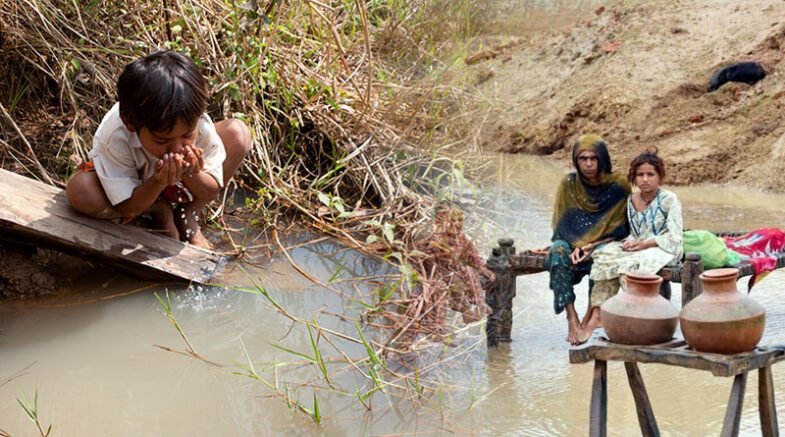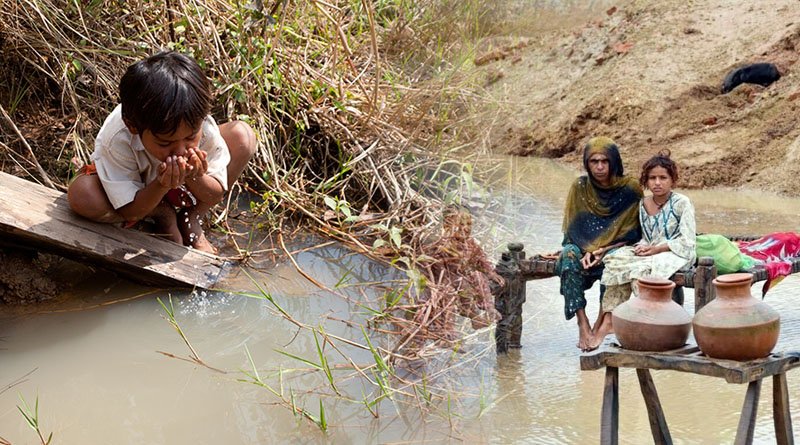Infected water comes in many different forms, like chemicals, pesticides, and industrial waste that has been injected into the earth.

Our body contain 60% water. Without fluids, we can only survive for three to five days. Water is essential for digestion. As well as many other vital bodily functions, including as cleaning out waste and controlling body temperature. But infected water can destroy the whole body.
The planet consist of 70% water. Maintaining health, raising food, producing energy, and managing the environment are essential. Water preserves the tissues, joints, and spinal cord and maintains body temperature. There is no life without water. Getting enough water may save you from illnesses like hypertension, asthma, kidney stones, urinary tract infections, and constipation.
Additionally, water supports the absorption of vital nutrients from food, which are equally crucial for maintaining our health. Sanitation, hygiene, and access to clean water are essential for maintaining human health and well-being.
Water is extremely important for our health. Drinking water keeps our blood vessels wide open, allowing blood to freely reach our kidneys and carry vital nutrients to them. The main causes of water pollution are bacteria, viruses, parasites, insecticides, pharmaceuticals, plastics, feces, radioactive materials, fertilizers, and pesticides.
Water-borne diseases
Water-borne disease or infection is one that people can catch from infected water. These are microbes or pathogens that cause disease in humans due to drinking contaminated water. Infected water can come in many different forms. Chemicals, pesticides, animal waste, and industrial waste that has been injected into the earth are some of them. Unclean water can lead to skin and infectious eye diseases when used for washing. The pathogenic contamination can cause many diseases such as cholera, diarrhea, amebiasis, typhoid, gastroenteritis, hepatitis, giardiasis, campylobacteriosis, scabies, and worm infections.
Cholera
The intestine becomes infected with the Vibrio cholera bacteria, which results in the acute diarrheal sickness known as cholera. When cholera bacteria are present in food or drink, people might become ill. Although the infection is mostly minor or symptomless, it can occasionally be serious and life-threatening. One in ten cholera patients will face major signs and symptoms include watery diarrhoea, vomiting, and leg cramps. These persons experience dehydration and shock due to the rapid loss of body fluids. Incubation period is between 2 hours and 5 days.
Typhoid fever
A bacterial infection called typhoid fever can spread throughout the body and harm several organs. It can lead to major problems and even be fatal without early treatment. Bacteria Salmonella typhi cause food poisoning. Food poisoning is due to uncleaned water or contaminated water. If someone who has typhoid touches food or drinks, you intake without first cleaning their hands. It may also occur if waste water contaminates food or beverages that people eat. Incubation period is 6 to 30 days.
Hepatitis
Hepatitis refers to liver inflammation. The liver is an essential organ that filters blood, processes nutrients, and fights infections. The function of the liver can be impacted by inflammation or injury. The faecal-oral route is the main way that the hepatitis A virus spreads. It occurs when an uninfected person eats food or water that has been contaminated by the feces of an infected person. In families, this could occur when an infected person prepares meals for family members using dirty hands.
Giardiasis
The small intestine is infected with giardiasis. Giardia lamblia, a tiny parasite, is responsible. In contact with an infected person, giardiasis spreads. Additionally, consuming contaminated food or drinking infected water might lead to giardiasis. Symptoms appear like upset stomach, nausea, diarrhea, dehydration, vomiting and abdominal pain. Incubation period is 1 to 14 days.
Prevention
Maintain proper personal hygiene and good environmental management. Learn about the basics of food safety and take care to protect yourself, your friends, family, and others in your community. Ensure that the water you are drinking has been adequately treated. Before eating or drinking anything, wash your hands thoroughly. We should use mineral water. We need to use boiled water. Furthermore, we should ensure that the water is clean before consuming it.
This article is jointly written by Sadia Bibi, Prof. Dr. Anas Sarwar Qureshi, Dr Shah Nawaz, Dr. Muhammad Saqib, Muhammad Asghar.
